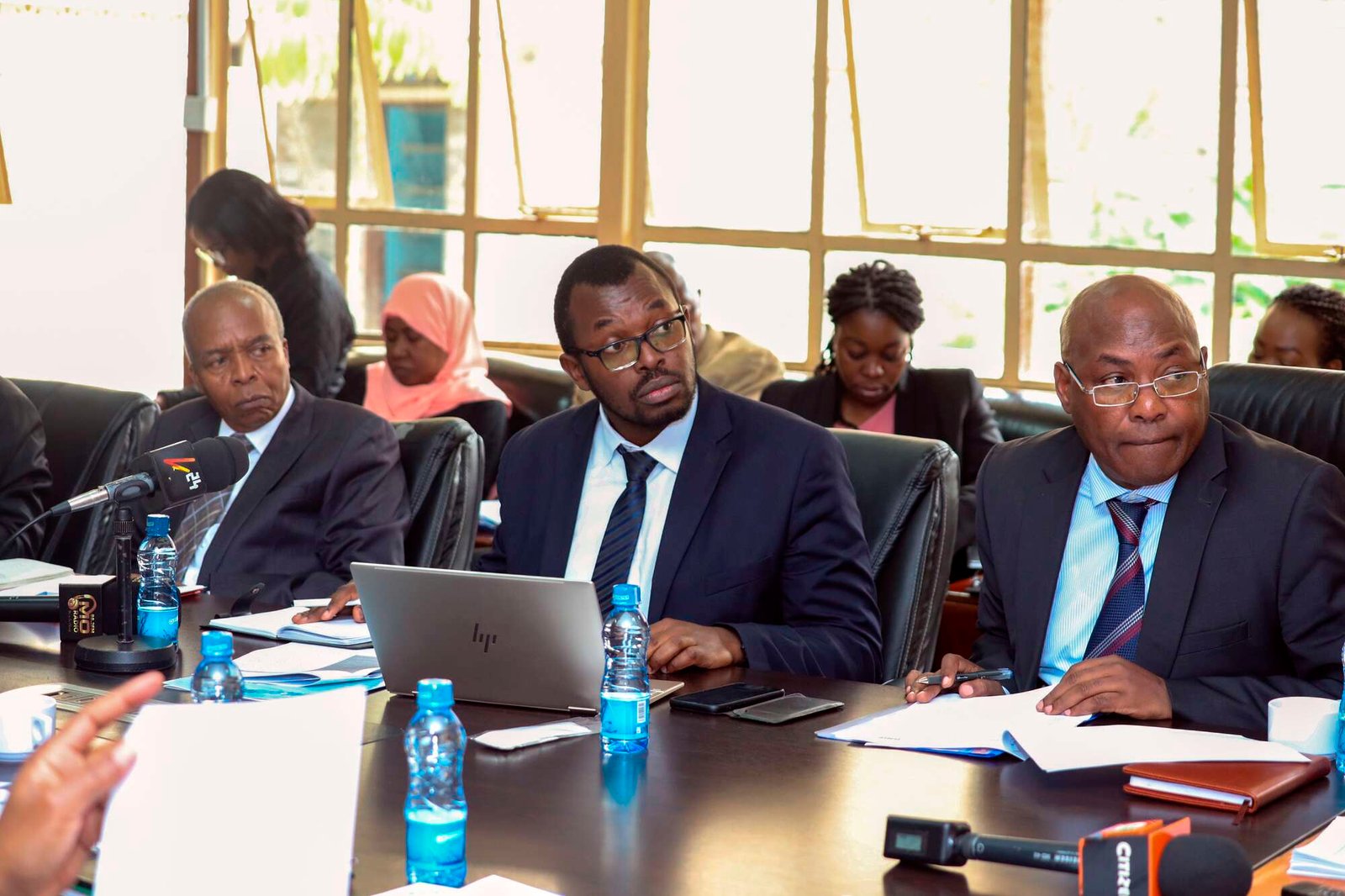[ad_1]
Economy
NHIF pays five times more for drugs, distributors tell MPs
Wednesday July 26 2023
(From left) NHIF board chairman Michael Kamau, acting NHIF CEO Samson Kuhora and Principal Secretary for Public Health and Professional Standards Harry Kimutai before the Departmental Committee on Health at Parliament on June 27, 2023. PHOTO | DENNIS ONSONGO | NMG
Investigations by the National Health Insurance Fund (NHIF) into how health facilities preyed on the elderly to mint millions of shillings have found Eastleigh-based Amal and Beirut hospitals guilty of fraud.
Samson Kuhora, the acting NHIF CEO, said other hospitals that have been suspended and are under investigation are Afya Bora Hospital, Afya Bora Hospital Annex, Jekim Hospital Nkubu Ltd, Jekim Medical Centre, Joy Nursing and Maternity Eastleigh, and St Peter’s Orthopaedics and Surgical Specialty.
Read: Governors want tougher jail terms for NHIF fraud
“Investigations have found that there was fraud in terms of the members who accessed the service as media reported, Amal Hospital and Beirut Hospital which are based in Eastleigh have been found guilty, the reports completed and submitted to the board,” Dr Kuhora told the parliamentary health committee on Tuesday.
“For the others, investigations which started on June 16 this year are still ongoing and are expected to be completed in 90 days.”
The committee chaired by Endebess MP Robert Pukose is probing claims of fraudulent medical claims and capitation payments to health facilities by the NHIF.
He said health facilities found to be part of the fraud will be suspended for five years but can appeal after two years.
“What we usually recover is the amount that has been lost by NHIF, we then file reports to other investigative agencies to take other legal actions but what we recover presently [sic] is the amount listed as lost by the fund.”
MPs further disclosed that they have official reports on how some NHIF staff were colluding with India-based healthcare providers to siphon millions through dubious medical claims and payments.
“We acknowledge that fraud and corruption have regrettably infiltrated the health sector, posing significant challenges to the achievement of our mission in providing equitable healthcare access. An impact assessment study presented to the board in 2020 estimated the medical fraud risk to be 29.3 percent,” NHIF said in its report to the health committee.
Dr Kuhora, however, pointed out that in the last financial year, the NHIF has had challenges with getting premiums from the government.
“We usually have the premiums paid within the first 90 days of the financial year, so within quarter one we usually anticipate that the payments have been made but in the last financial year we have had challenges with remittances from government entities and that is what has led to the accumulation of funds,” he said, adding they are working closely with the ministry to get disbursements on time.
On what NHIF is doing to curb fraud and corruption, the MPs were told the insurer has introduced biometrics.
“The incorporation of biometric verification has bolstered our authentication processes, ensuring the accurate identification of beneficiaries and minimising identity related-fraud,” the acting CEO assured.
Dr Pukose, the committee chairman, however, pressed the NHIF to detail how it was safeguarding itself from fraud linked to healthcare providers.
The Kenya Pharmaceutical Distributors Association chairperson Kamamia wa Murichu told the MPs that hospitals “grossly abuse the process. They charge exorbitant amounts, two to five times more for the generic version of medicine but indicate the price as it would cost for the original version of drug when they are claiming money from NHIF.”
According to Dr Murichu, a drug that costs Sh600 at the chemist’s would cost four or five times higher when a hospital makes the claim to NHIF.
“When the claim is being sent to NHIF, it will be indicated as the original version of the drug,” he said.
The MPs also learnt that Abdullahi Ali, the quality assurance lead at the NHIF, is a geologist and want him fired.
Read: State orders lifestyle audit for NHIF staff in graft crackdown
The committee chairman highlighted that the NHIF’s investment capital was reduced by Sh7 billion between 2021 and 2023 from Sh15 billion to Sh8 billion.
“This is why the health insurer had been liquidating short-term assets and eating into reserves,” Dr Pukose said.
[ad_2]
Source link



